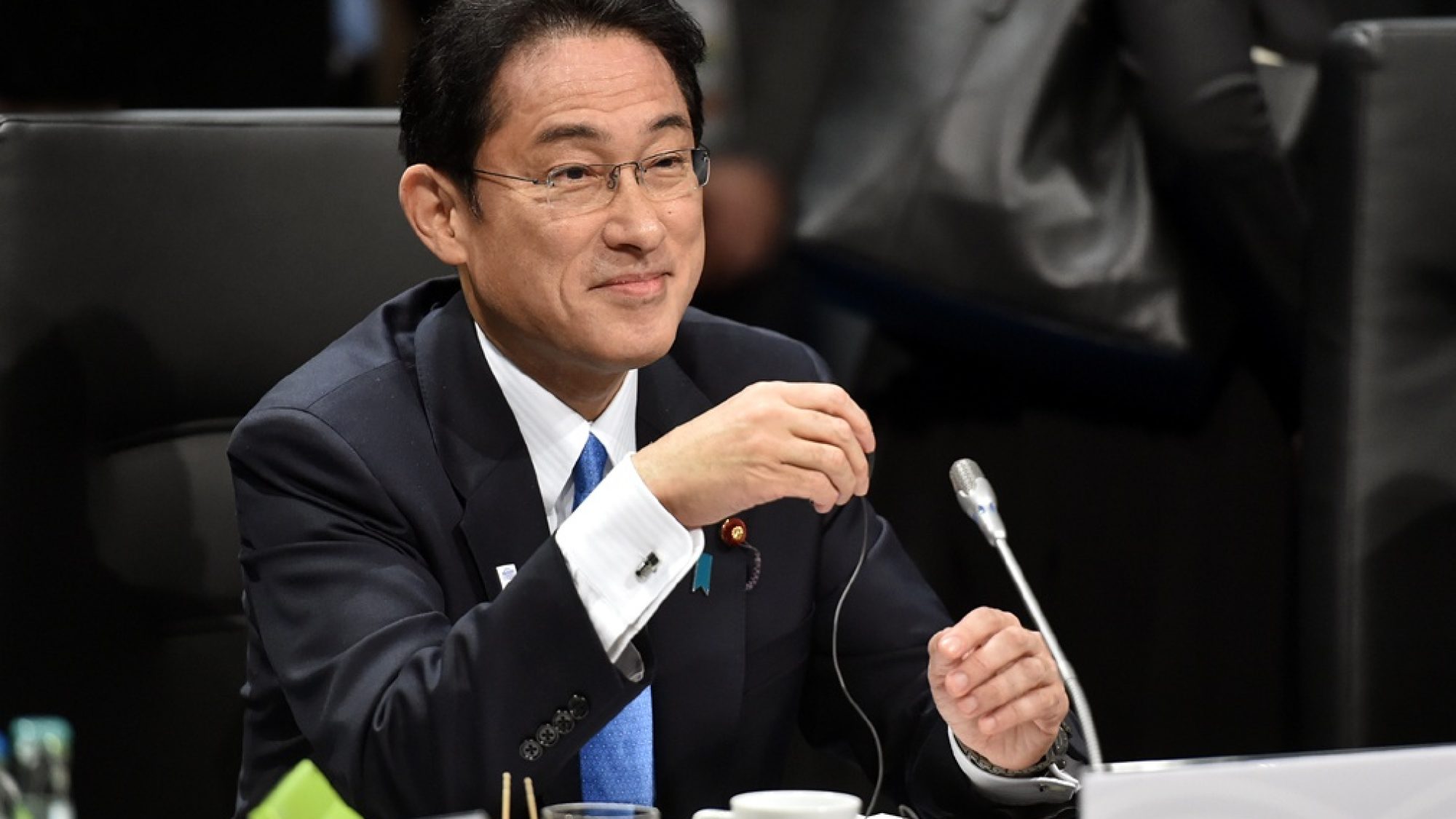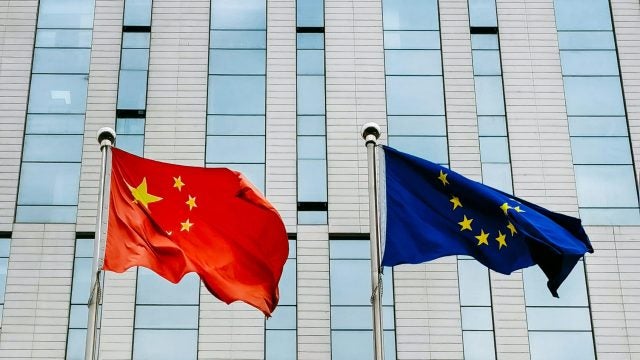
Title: Japan Makes Control of Emerging Technologies a Priority
Japan is increasingly focused on economic security and is reorganizing its national security bureaucracy to better effectuate those policies. Central to that project is ensuring better coordination with the United States and other like-minded governments to address these concerns. Despite notable progress, Tokyo has considerably more work to do.
Japan’s new prime minister, Kishida Fumio, has promised to “think about national security from a variety of perspectives, not just force.” While this is a longstanding part of Japanese thinking—a historical predilection reinforced by constitutional constraints on the use of hard power—the new administration looks set to take this to new levels in response to what former National Security Advisor Kitamura Shigeru calls a “tectonic shift” in the development and application of new technologies. Economic issues are central to the strategic competition that defines contemporary geopolitics, and mastery of the frontiers of emerging technologies will be critical to success in that struggle. Japan has made progress in recent years to develop its economic security capabilities, but the importance of these concerns and the difficulty in balancing various—and sometimes competing—national priorities means that considerably more work needs to be done.
‘Economic Security’ Shapes Tokyo’s Thinking
Japanese thinking about economic security rests on two pillars: strategic autonomy and strategic indispensability. The first requires that Japan has the means to ensure the economic well-being of its citizens as well as the nation’s economic strength and vitality. The second demands that Japan has industrial capacity in fields considered important to international society. If the former pillar has a domestic focus, the latter pillar is determined by demands from the world beyond its borders. The most recent articulation of Japanese policy is the Basic Policy on Economic and Fiscal Management and Reform 2021, approved by the Cabinet in June 2021. It says that Japan’s economic security depends on “expanding and deepening cooperation with like-minded countries while ensuring Japan’s autonomy and gaining a competitive advantage under an international order based on basic values and rules.” This will be accomplished by “identifying key technologies, enhancing efforts to preserve and develop them, and developing the resilience of core industries.”
In practical terms, this has meant policies to re-shore facilities that are key elements of the global supply chain (semiconductors are one focus), the creation of funds to develop new technologies, and new or tighter controls on technology to prevent their loss or acquisition by hostile governments.
While there is always a temptation to rely on, or abuse, unilateral measures to promote economic security, Japan to its credit has pursued international cooperation in many of its most recent efforts. Its closest partner in these endeavors is the United States. In fact, a key objective for governments in Tokyo in recent years has been the closing of any gaps between the two allies, particularly on issues of economic security and ensuring that the two policy communities move forward together. The creation of an economic division within Japan’s National Security Secretariat, which went into effect in 2020, was intended, among other things, to facilitate communication and cooperation between the United States and Japan.
If that was the plan, then it seems to have worked. When then Prime Minister Suga Yoshihide met President Joe Biden at the White House in April 2021, the two men agreed to “partner on sensitive supply chains, including on semi-conductors, promoting and protecting the critical technologies that are essential to our security and prosperity.” The centrality of technology to the relationship was clear in the announcement of the Competitiveness and Resilience (CoRe) Partnership.
The allies will use CoRe to pursue global leadership in innovation, to address climate change, and promote green, sustainable global growth using technology in clean energy and other sectors. They will also work to both ensure COVID-19 vaccines are available worldwide, especially in the Indo-Pacific, and build longer-term global health security to help prevent the next pandemic. The first item in that CoRe outline has been built upon in the Japan-US Joint Working Level Committee on Science and Technology, which held its 16th meeting on June 17, 2021. CoRe set the agenda for that meeting, and attendees conducted a “deep dive” on quantum technology, artificial intelligence, and climate change and clean technology.
In addition to that bilateral effort, Japan launched the Supply Chain Resilience Initiative with Australia and India in April 2021, which aims to identify and eliminate vulnerabilities in production networks. And, as noted above, supply chain security was a part of the Biden-Suga Joint Declaration in April.
The Quad Gains Traction
Perhaps the most important forum for Japan is the Quadrilateral Security Dialogue (the Quad). Japan has a special fondness for the Quad because it is the clearest realization of the Indo-Pacific geographic (and geopolitical) framework. First articulated by then Japanese Prime Minister Abe Shinzo in a 2007 speech to India’s parliament, the Quad serves many purposes for Tokyo. It more deeply embeds the United States in regional security architecture. It thickens the weave of relations between the United States and its allies, and brings a non-allied government, India, into the mix, a country that poses a geographical, military, and demographic counterweight to China, the greatest challenger to the regional status quo.
Quad members and other regional, and increasingly European, powers are alarmed by Beijing’s increasingly muscular foreign policy that, facilitated by an ever more powerful military, is being used to underwrite changes to the regional and global order. China seeks to redraw borders, assert control over the South China Sea—one of the world’s most important transportation arteries—and use its growing economic power as a tool of influence or, occasionally, coercion against other countries. China is alarmed by the success of the Quad, and the readiness of it and other institutions like the G7 to condemn Beijing’s (mis)behavior and take actions to counter it.
The Quad is invaluable because while it has a military component, it also aims to compete with countries that would disrupt the status quo across a range of domains: diplomatic, economic, and technological. In March, the group launched a critical and emerging technologies working group that has pursued four foci: technical standards, 5G diversification and deployment, horizon-scanning, and technology supply chains. At the September leaders’ summit hosted by President Biden, the group endorsed the statement on “Quad Principles on Technology, Design, Development, Governance and Use.” It is intended to provide a framework for “responsible, open, high-standards innovation” that will promote democratic values and safeguard universal human rights.
Work to Be Done
Progress has been made, but formidable obstacles remain. There is, for example, the proliferation of technology control initiatives; virtually every meeting that senior U.S. officials working on technology and security policy hold with foreign counterparts seems to endorse such efforts. Japan is at the center of many Indo-Pacific initiatives but not all. It is not included in the new Australia-UK-US (AUKUS) security partnership, which aims, among other things, “to foster deeper integration of security and defense-related science, technology, industrial bases and supply chains.” Tokyo is also not part of the new U.S.-Europe Trade and Technology Council. Technology controls are more effective when the group imposing them gets larger, but there is no coordinating mechanism that ties those disparate programs together. It does no good for one group of governments to restrict access to technologies if other governments whose businesses have the same or equally advanced technologies do not. Sharing is also required to identify bad actors or problematic purchasers.
Japan’s failure to better protect intelligence is another obstacle to more fulsome participation in information-sharing regimes. This is a longstanding problem in relations between the United States and Japan, and American officials and experts have urged Japan to improve its handling of classified information since this has perpetuated a reluctance to share sensitive intel with Japan.
A third and particularly thorny problem concerns the uncertainty inherent in technological development and the identification and control of strategic technologies. Although it is a cliché, the future is unknowable. It is impossible to anticipate what technologies will be developed and how they will be applied. Technology controls—government-imposed restrictions to international access to particular technologies—are thus invariably backward looking, even though the focus on “emerging technologies” requires anticipation of future uses.
Moreover, technology controls have historically addressed military applications. However, the breadth of the current strategic competition requires a far more expansive definition and consideration of technology that is to be controlled. As Japan’s former science and technology minister explained, “emerging technologies such as the internet of things, 5G, artificial intelligence, quantum technology not only produce economic benefits but have the potential to affect civil liberties, human rights and even national security.” This transforms the basic conditions in which most basic research and development occurs and the context in which ordinary business transactions—investments and asset sales—take place. This is difficult in the most optimal circumstances, but it assumes even greater significance in Japan where there is less familiarity and comfort with restrictions on doing business because of military concerns.
Japan has a long way to go to address these issues. In fairness, all governments do. To their credit, the country’s politicians and strategists recognize the problem and the obstacles and have begun to chip away at them. Prime Minister Kishida’s decision to create an economic security minister is an important first step; he should be made a full member of the National Security Council. The government must update its national security strategy to more fully articulate thinking about this problem; a national economic security strategy that goes still further would also be helpful.
As Japan’s leaders build national capability, they must recognize that any solution should be cooperative and multilateral. In addition to promoting cooperation in the Quad and other initiatives (including its alliance with the US), Japan could convene a multilateral conference like the Shangri-la Dialogue to more fully air this issue and provide the means for cooperation among like-minded countries.
. . .
Brad Glosserman is Deputy Director of and Visiting Professor at the Center for Rule-Making Strategies at Tama University as well as Senior Adviser (nonresident) at Pacific Forum. He is the author of “Peak Japan: The End of Great Ambitions.” This article draws from his forthcoming manuscript on the strategic implications of new technologies.
Image Credit: Wikimedia Commons; Creative Commons Attribution 4.0 International License
Recommended Articles

This article contends that South Africa’s 2025 G20 presidency presents a critical opening to shape governance of critical mineral supply chains, essential for renewable energy, digital economies, and national…

Germany’s economy is being throttled by a more competitive China that has usurped its previous manufacturing dominance in many industries. In response, Germany has doubled down on the China bet…

In 2021, the European Union (EU) attempted to assert itself in the Indo-Pacific arena to increase its geopolitical relevance by releasing an ambitious and multifaceted Indo-Pacific Strategy. However, findings from…